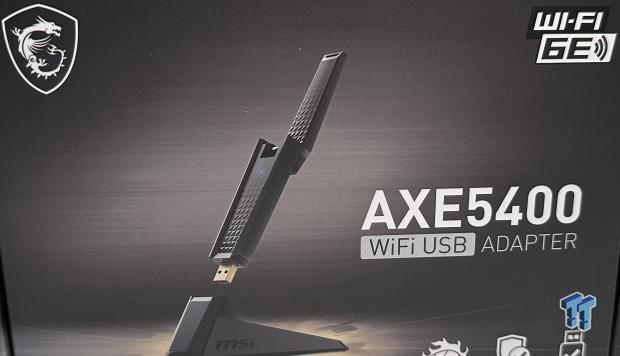
The Bottom Line
Pros
- + 6GHz support
- + USB Type-A interface
- + Price
Cons
- - Only supports Windows
Should you buy it?
AvoidConsiderShortlistBuy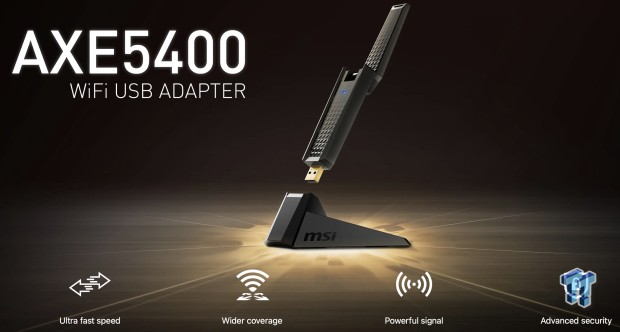
We don't see many USB Wi-Fi adapters come through for testing; in fact, 2017 was the last time we had one here at TweakTown. That said, these devices certainly have a market for those with older machines that need a simple upgrade path, especially when Intel's CNVio interface can be tricky to navigate.
MSI recently introduced its AXE5400 Wi-Fi adapter alongside its AX1800 counterpart, adding both devices to its networking lineup. Of course, these are solid pairings if you own one of their Radix Gaming Routers.
Specifications of the AXE5400 adapter start with a tri-band 2x2 radio configuration. This includes a 2.4GHz radio capable of 574Mbps, a 5GHz radio that can push 2400Mbps, and a 6GHz radio capable of 2400Mbps. This device carries a USB 3.2 Gen 1 interface using the Type-A connector. The pricing of the MSI AXE5400 comes in at $59 and includes a one-year warranty.
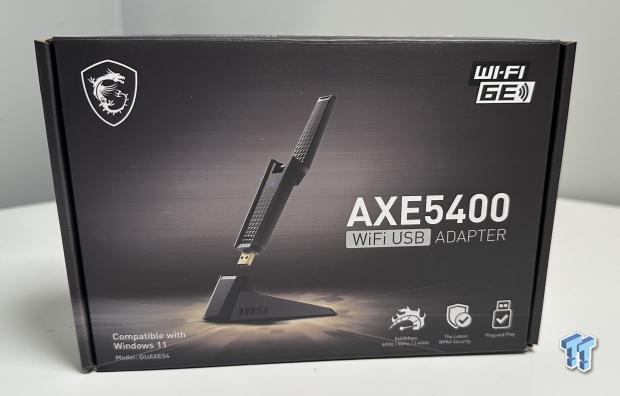
The AXE5400 adapter did arrive in factory packaging, as seen above. This includes an image of the adapter along with supported standards and OS compatibility listed at the bottom.
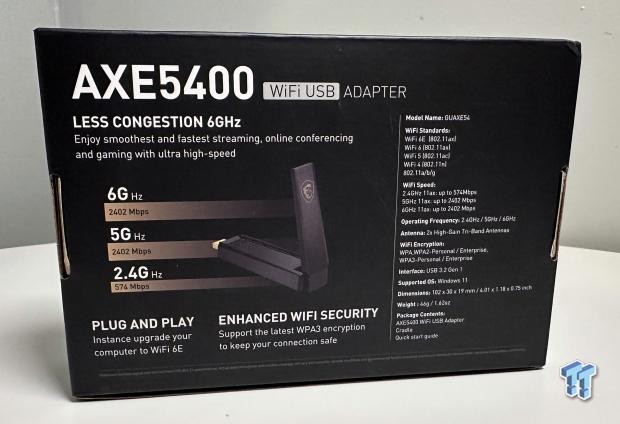
The back offers specifications for the adapter to the right and features to the left.
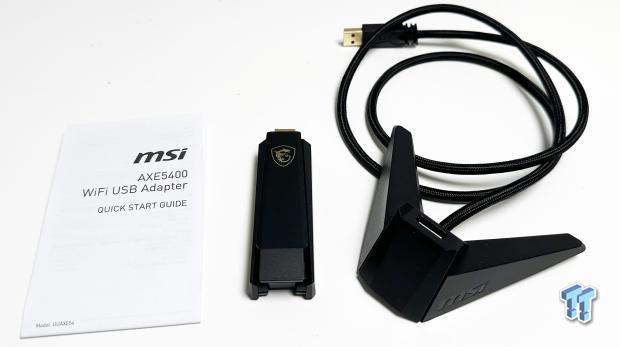
Included with the adapter, MSI sends along a USB 3.2 base so the adapter can be set up away from your machine.
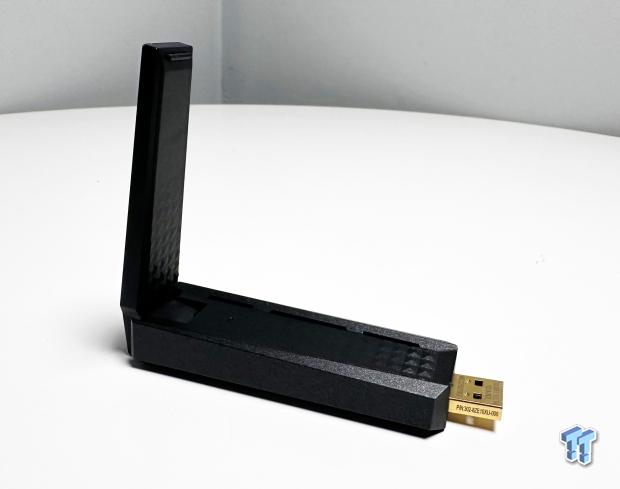
The adapter offers a Type-A connection on the right and a black plastic body, a touch larger than a standard USB 3.2 flash drive. The antenna area is foldable and hides away a blue LED that shows the unit is powered up.
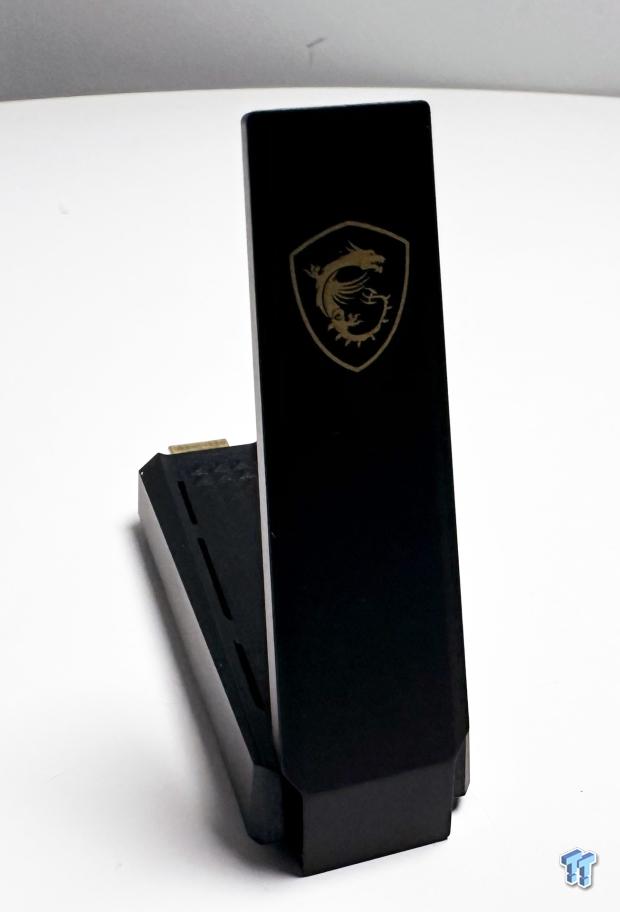
The front of the antenna does have MSI's Gaming logo.
1st Test System Wi-Fi
- System: Alienware M16 R2
- Wi-Fi: Intel Wireless Wi-Fi 7 BE200
- OS: Microsoft Windows 11 Pro (buy from Amazon)
2nd Test System LAN
- System: ASUS ROG Strix Scar 17
- LAN: Marvell AQC113 10Gbe Thunderbolt Adapter
- OS: Microsoft Windows 11 Pro (buy from Amazon)
1st Test Access Point
- AP: Ubiquiti Unifi AP Pro 7
Wi-Fi Testing and Final Thoughts
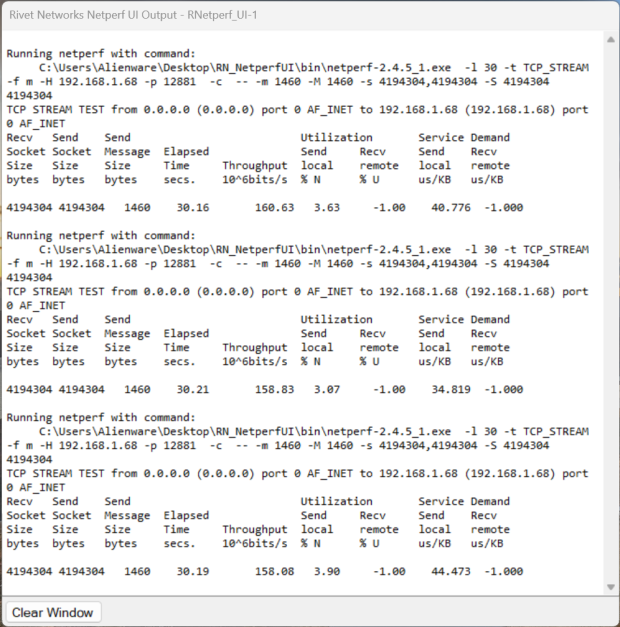
There are no charts for this review as we don't have any comparisons for the AXE5400. That said, we do have raw data. Above, the 2.4GHz radio shows about ~160Mbps of throughput.
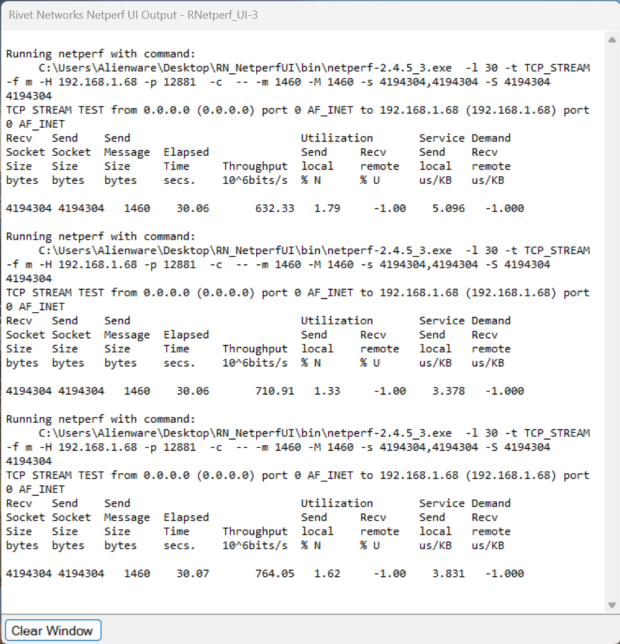
5GHz was a bit quicker than it should have been. In our testing, we picked up an average of 710Mbps.
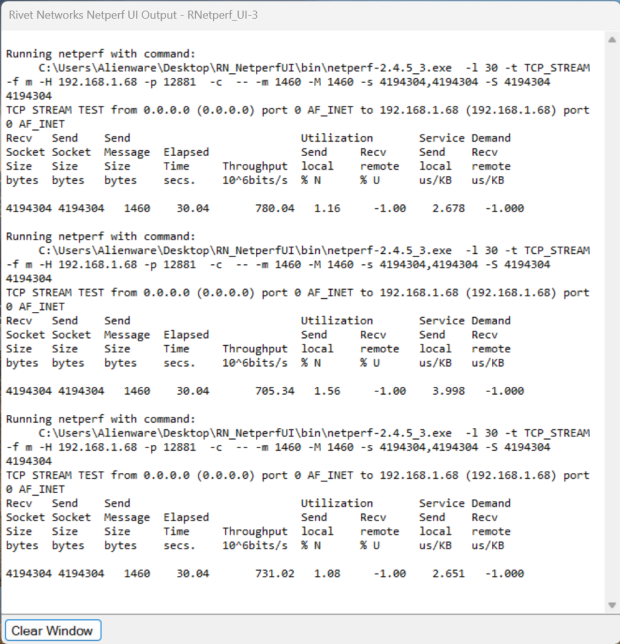
Last, we have the 6GHz radio, and again, we picked up a slight improvement in throughput, likely due to less traffic. The MSI averaged around ~730Mbps.
The AXE5400 went through testing without issue, as MSI has set this device up for plug-and-play after a rather quick driver install. I used this adapter on several older machines to test for compatibility issues and was quite pleased. There were no issues on our older Yoga Gen 6 or Blade 15 from 2020, both using Windows 10.
The caveats are minimal yet understandable. This adapter only supports Windows 10 and 11, though, in our conversations with MSI, they did note a possible Linux driver coming soon. That said, as someone whose daily machine is an older MacBook Pro, I would love to see Intel Macs get driver support, though we know that isn't likely with them on Apple's EOL list.
Testing went smoothly; we obtained solid numbers across the board, testing at ~ a 15-foot distance from the AP. 2.4GHz had an average speed of 160Mbps, while 5GHz ran around 710Mbps. 6GHz picked up the pace slightly to offer 730Mbps.
Pricing for the MSI AXE5400 adapter is very competitive. Looking at several online retailers, the MSI seems to hover around $59, which is about $30 cheaper than competing products from the likes of TP-Link and others.

